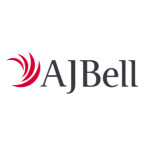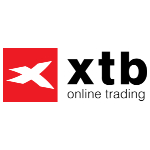How To Buy BP Stocks & Shares
Buy BP [BP.] Stocks & Shares
Discover the best ways to buy BP stock and maximize your investment. Follow our simple guide!
As one of the world’s largest energy companies, BP has a long history of providing consistent returns for investors. However, buying BP stocks and shares requires some knowledge and preparation. In this guide, we’ll take you through the steps you need to follow to buy BP stocks and shares and provide you with some tips to help you make informed investment decisions. Whether you’re a seasoned investor or just starting, this guide will provide you with everything you need to know to invest in the Company’s shares with confidence.
Top trading apps
-
Flat fee trading

- Join today & get £50 FREE trading credit
-
Award Winning

- Trade 24/7
-
Best for Share Dealing

- Award Winning Trading App
-
Best for Global Trading

- £500 in trading commissions
The right share trading app or platform for you will depend on your requirements.
How to buy BP shares
Our view: The next generation of online trading platform means you can get setup & buy BP shares in as little as 5 minutes!
- Select a share platform - See our top platform picks
- Open your share account - To do this, you will need your bank details and national insurance number
- Fund your account - You will need to fund your a/c with a debit or credit card or bank transfer
- Search for the share using the BP stock code - Type in the BP stock code into the search box
- Check out the latest info and price for the selected share - Some platforms offer free research and analysis
- Buy the share - Nice and easy!
More than 40,000 UK & international investment options
Get £100 worth of free trades when you open an ii trading account. Terms & fees apply. New customers only. Ends 5th April | Go to website » | |
| Trusted by over 430,000 people. FSCS protected. Capital at risk. | ||
Buy shares from over 24 international markets
| Go to website » | |
| Trusted by over 1.5 million people. FSCS protected. Capital at risk. | ||
Choice of 760 low cost ETF Funds
| Go to website » | |
| Build your own low cost portfolio using ETF managers such as Vanguard & JP Morgan. FSCS protected. Capital at risk. | ||
13,000+ shares & ETFs to trade
| Go to website » | |
| 313,000+ clients worldwide. FCA Regulated. Capital at risk. Spread bets and CFDs are complex instruments and come with a high risk of losing money rapidly due to leverage. 71% of retail investor accounts lose money when trading spread bets and CFDs with this provider. You should consider whether you understand how spread bets and CFDs work, and whether you can afford to take the high risk of losing your money. | ||
| Buy & trade in almost 5500 UK, EU and US stocks with low 0.35% currency conversion. Features: Say goodbye to high minimums and barriers to entry. Introducing the high interest vaults offer: - Interest rate: 4.61% on GBP (as of 12th March 2025) - Pricing: 0.25% total fees for all deposit sizes - Minimum amount: £1, €1, $1 - Maximum amount: No limit Capital at Risk | Go to website » | |
| Multi-currency investing, your money goes even further without the constant foreign exchange fees. Deposit, hold and invest in international stock markets in EUR, GBP and USD — all under one roof. Shares have a low, transparent execution cost. Investing in your local ETFs is completely free of Lightyear fee (other fees may apply). Earn interest on uninvested cash. Access live news feeds about the stocks you own, as well as professional analyst ratings & price targets. Lightyear is now live on web and has launched earnings calls audios. Capital at Risk. We, Fair Investment Company, will be paid a referral fee if you open an account and deposit funds through some of the links on this page. This includes financial promotion. | ||
| Invest in real stocks with 0% commission*. Over 6900 instruments Features: XTB is one of the largest stock exchange-listed FX brokers in the world with 1 million+ customers and over 20 years of activity in the financial markets. Capital at Risk Earn 4.5% interest rate on GBP uninvested funds | Go to website » | |
| World class trading platform: Easy to use, fully customisable, superior execution speeds, performance statistics. Applying for an account is quick and easy with a secure online form, and you could be trading within minutes. Wide range of instruments -forex, indices, commodities, shares and ETF’s. Multilingual customer support team is ready to help you - 24h hours a day from Monday to Friday. *For monthly turnover up to 100,000 EUR (then comm. 0.2%, min. 10 EUR). Capital at risk | ||
| Invest in over 6,100+ US, UK & EU stocks & ETFs commission-free Features: Start with £2 investment. Superb app design and transparent account charges. Great for beginners and experienced investors alike | Go to website » | |
| Mobile app - manage your portfolio on the move. FSCS protected. Capital at risk. | ||
| Access over 3,000 funds. UK & Overseas shares. Invest from £100 or £25 pm Features: Live share prices. Award winning services. | Go to website » | |
| Hargreaves Lansdown is the UK's No 1 platform for private investors trusted by over 1.6 million customers. Capital at risk. | ||
| Access to 70,000+ instruments, smart trading tools & market insights Investment platform for different needs and experience levels | Go to website » | |
| Saxo serve clients in 170 countries, hold 70+ bn GBP in assets under management & process 1m transactions daily. FCA regulated. Capital at risk. | ||
Trading news for BP
Is now a good time to buy BP shares?
4 Tips for trading BP stock:
- Do your research – Before buying or selling BP stock, research the company’s financial performance and other factors affecting its stock price.
- Set a strategy – Have a clear plan for buying and selling BP stock based on your research and risk tolerance.
- Use stop-loss orders – Use stop-loss orders to limit your losses if the stock price falls below a certain level.
- Diversify your portfolio – Don’t put all your money into BP stock. Diversify your portfolio to reduce your risk.
What is BP’s Business Model?
Before you decide to invest in BP, it is essential to understand the company’s business model.
The BP Group is a British multinational oil and gas company headquartered in London, United Kingdom. Exploration, production, refining, distribution, and marketing of oil and gas are among the company’s activities in more than 70 countries worldwide.
Exploration and production upstream, refining and marketing downstream, and trading oil and gas make up BP’s primary business activities.
Upstream operations include locating and extracting oil and gas from the earth, while downstream operations include refining crude oil and marketing the end product.
Additionally, BP engages in trading activities, which involve buying and selling oil and gas commodities in the global markets.
BP’s diverse operations have made it one of the world’s largest and most integrated oil and gas companies.
How Do I Analyse BP’s Share Price?
Analysing the Company’s share price involves studying its financial performance, market trends, and other factors that could affect its stock price.
Here are some factors to consider when analysing BP’s share price:
- Financial performance – Analyse BP’s revenue, profit, and cash flow to determine its financial health.
- Industry trends – Consider global demand for oil and gas, geopolitical tensions, and other factors that could affect BP’s industry.
- Management and strategy – Evaluate BP’s management team and its strategy for growth and sustainability.
- Competition – Consider BP’s competitors and their oil and gas industry market share.
Several tools and resources are available to help you analyse BP’s share price, including financial news websites, analyst reports, and stock market data platforms.
What UK Investment Platforms Should I Consider to Buy BP Shares?
When choosing a UK investment platform to buy BP shares, you should consider the platform’s fees, user interface, trading tools, and customer support. Here are some popular UK investment platforms you can consider:
- Interactive Brokers – Low-cost global trading platform. Buy BP stock from £1 per trade
- Degiro – Award-winning trading app. Buy BP shares from £1.75 per trade
- IG – Easy-to-use trading platform. Zero commission on US shares. Trade BP shares from £3 per trade
How Much Does It Cost To Buy BP Shares in the UK?
In the UK, the cost of buying BP shares is determined by the current market price and your broker’s fees. The market price of BP shares fluctuates based on various factors, including global demand for oil and gas, geopolitical tensions, and the company’s financial performance.
Most UK investment platforms charge a fee per trade, ranging from £1 to £15 per trade. Some platforms also charge additional fees for account maintenance or inactivity.
What is the Difference Between Investing and Trading BP Shares?
When buying and selling BP shares, it’s essential to understand the difference between investing and trading. Investing in BP shares means buying shares with the intention of holding onto them for a longer period, typically to earn a profit through capital appreciation and or dividend payments. On the other hand, trading BP shares involves buying and selling shares more frequently, often within shorter time frames, to make smaller, more frequent profits.
Investors in BP shares typically take a more long-term approach, analysing the company’s financials and other key indicators to make informed decisions about when to buy and sell shares. They may also consider factors such as BP’s dividend policy, industry trends, and macroeconomic conditions that could affect the company’s performance over the long term.
On the other hand, traders may take a more short-term approach to buying and selling BP shares, using technical analysis and different trading strategies to make profits on short-term price movements. They may also use instruments such as spread betting and CFDs to gain exposure to BP’s share price without owning them.
How Can I Use Spread Betting or CFDs to Trade BP Shares?
Spread betting and contracts for difference (CFDs) are popular derivatives that allow you to trade the price movements of BP shares without owning the underlying shares.
Several UK investment platforms offer these instruments and will enable you to go long or short on BP shares.
To use spread betting or CFDs to trade BP shares, you need to follow these steps:
- Open a spread betting or CFD trading account with a UK investment platform.
- Fund your account – Deposit funds to start trading. Most platforms offer a range of payment options, including bank transfers and credit/debit cards.
- Search for BP shares – Once you have funded your account, you can search for BP shares on the platform. Enter “BP” in the search bar, and the platform will show you the current price of BP shares.
Spread betting and CFDs are leveraged products, meaning you can potentially make large profits or losses. It’s essential to have a solid understanding of the risks involved before trading with these instruments.
What UK investment funds could I consider investing in that have BP as one of their holdings?
Many UK investment funds hold BP as one of their holdings. Here are a few examples:
- Legal & General UK Index Fund – This passive index tracker fund tracks the FTSE 100 index, which includes BP as one of its constituents.
- M&G Recovery Fund – This actively managed fund invests in undervalued UK companies and currently holds BP as one of its top holdings.
- Vanguard FTSE UK Equity Income Index Fund – This passive index tracker fund tracks the FTSE UK Equity Income Index, which includes BP as one of its constituents.
- Liontrust Sustainable Future UK Growth Fund – This is an actively managed fund that invests in UK companies deemed sustainable and socially responsible and currently holds BP as one of its top holdings.
- Royal London Sustainable Leaders Trust – This is another actively managed fund that invests in companies that are deemed to be sustainable and socially responsible and currently hold BP as one of its top holdings.
Please note that this is not an exhaustive list, and other UK investment funds may hold BP as one of their holdings.
As with any investment, it is important to do your research and consider your investment goals, risk tolerance, and investment horizon before making any investment decisions.
What UK investment trusts could I consider investing in that have BP as one of their holdings?
BP is one of the largest energy companies in the world, and as such, it is often a popular investment choice for many UK investment trusts due to its capital growth prospects and income yield history.
Below is a selection of investment trusts in the UK which have BP as one of their listed holdings.
- City of London Investment Trust – Founded in 1891, the City of London Investment Trust is one of the oldest investment trusts in the UK. It invests primarily in UK-listed companies, focusing on generating consistent income for its investors. BP is one of the top holdings in the trust, accounting for 3.1% of its total assets as of February 2023.
- Witan Investment Trust – The Witan Investment Trust is a global investment trust that aims to provide long-term growth for its investors by investing in a diversified portfolio of global equities. As of 28th February 2023, BP was listed as one of the top 20 holdings in the trust, accounting for 1.8% of its total assets.
- Temple Bar Investment Trust – The Temple Bar Investment Trust invests in companies that are undervalued by the market or that are overlooked. BP is one of the top holdings in the trust, accounting for 8.1% of its total assets, along with Shell at 6.93% as at 28th February 2023.
- Murray Income Trust – The Murray Income Trust is an investment trust that aims to generate a high and growing income for its investors by investing in a diversified portfolio of UK-listed equities. BP is one of the top holdings in the trust, accounting for 3.73% of its total assets at 31st January 2023.
- Lowland Investment Company PLC – This investment trust aims to achieve long-term capital growth and income by investing in a diversified portfolio of UK-listed companies. BP was the 2nd largest holding in the portfolio as of 28th February 2023, accounting for 3.2% of total assets with a market cap of £344m.
How do I sell BP shares?
Selling BP shares is a relatively straightforward process. If you hold your shares through a UK investment platform, you can typically sell them through the platform’s trading interface. You can sell BP shares by logging into your account, navigating to them, and clicking the sell option.
As soon as you initiate the sale, your shares will be sold on the open market, and the proceeds will be credited to your account. Remember that selling shares can incur transaction fees and other costs, which will be deducted from your proceeds.
If you hold share certificates, you will need to contact your broker or share registrar. Your broker can provide you with instructions on how to sell your shares and any necessary paperwork.
What is BP’s ESG investment policy?
BP has a stated commitment to Environmental, Social, and Governance (ESG) considerations in its investment and business practices.
The company’s ESG investment policy involves a range of initiatives, including:
- Reducing greenhouse gas emissions – BP has set a goal to achieve net-zero emissions by 2050 or sooner and has committed to reducing them by 50% by 2030.
- Investing in renewable energy – BP plans to invest $5 billion in low-carbon energy businesses over the next decade. It has set a target to grow its renewable energy portfolio to 50 GW by 2030.
- Supporting the Paris Agreement – BP has expressed support for the Paris Agreement on climate change and has stated its commitment to working with governments and other stakeholders to achieve its goals.
- Prioritising safety – BP has a stated commitment to safety and has implemented various measures to improve safety in its operations.
- Supporting diversity and inclusion – BP has a commitment to diversity and inclusion and has implemented programs to support the development of a diverse and inclusive workforce.
- Ethical business practices – BP’s Code of Conduct sets out ethical business practices and expectations for employees and partners.
These are just a few examples of BP’s ESG investment policy. The company has also established targets and initiatives related to water management, human rights, and community engagement, among other areas.
BP’s ESG investment policy is intended to support the company’s long-term sustainability and financial performance while addressing key societal and environmental challenges.
What ESG investment funds include BP as one of their investment holdings?
It is important to note that what is considered an “ethical” investment fund can vary depending on the specific fund and the criteria the fund manager uses to define ethical investments.
However, some investment funds focus on socially responsible or sustainable investing, including BP, as part of their holdings.
Here are a few examples:
- Baillie Gifford Positive Change Fund – This is an actively managed fund that invests in companies that are deemed to positively impact society and the environment and meet specific sustainability criteria. BP is currently one of the fund’s holdings.
- Royal London Sustainable Leaders Fund – This is an actively managed fund that invests in companies deemed to be sustainable and socially responsible and meeting certain environmental, social, and governance (ESG) criteria. BP is currently one of the fund’s top holdings.
- M&G Sustainable Multi Asset Fund – This is an actively managed fund that invests in a mix of sustainable equities and fixed-income securities, focusing on companies that meet specific ESG criteria. BP is currently one of the fund’s holdings.
- Legal & General Future World ESG Developed Index Fund – This is a passive index tracker fund that tracks an index of companies that meet outlined ESG criteria, including climate change, human rights, and business ethics. BP is currently one of the fund’s holdings.
It is essential to do your own research and due diligence when selecting investment funds and consider your investment goals, risk tolerance, and horizon before making any investment decisions.
FAQs
Do BP pay dividends?
The company’s dividend policy is subject to change based on its financial performance and other factors.
The board decides dividend levels every quarter based on the company’s performance. If an interim dividend is declared, then typically, this is paid to shareholders after eight weeks of the announcement.
Who are BP’s main competitors?
What factors affect the BP share price?
- Fluctuations in global oil prices
- BP’s financial performance, including its earnings and revenue growth
- Regulatory and political changes impacting the oil and gas industry
- Global economic conditions and market trends
- New discoveries or acquisitions specific to the company
What is the history of BP’s dividend policy?
However, the company has also faced challenges such as the Deepwater Horizon oil spill in 2010, which resulted in several quarters of dividend suspension.
Over the past few years, BP has steadily increased dividend payments to shareholders while strengthening its financial position.
How do I invest in BP shares or funds in an ISA?
Investing in BP shares or funds in an ISA can be done as follows:
- Choose your ISA provider – The first step is to choose an ISA provider that offers access to BP shares or funds. You can compare different providers online to find one that meets your needs. In the table above, nearly all the options given offer an ISA account option.
- Open an ISA account – Once you have chosen an ISA provider, you will need to open an ISA account. You can do this online or by completing a paper application form. You will need to provide personal details such as your name, address, and National Insurance number. Please note you can only open one ISA account per tax year. The tax year ends on April 5th.
- Fund your ISA account – Once your ISA account is open, you will need to fund it with cash. This can be done by transferring funds from your bank account or by setting up a regular monthly payment plan.
- Decide on your investment strategy – Before investing in BP shares or funds, deciding on your investment strategy is important. An investment plan should include your investment goals, risk tolerance, and investment time horizon.
- Choose your investment – Once you have decided on your investment strategy, you can invest in BP shares or funds. BP shares can be purchased through your ISA provider’s online trading platform, while BP funds can be invested in through your provider’s fund supermarket.
- Monitor your investment – Be sure to monitor the performance of your investment regularly. Regularly monitoring your ISA account or setting up alerts can help you do this.
Investing in BP shares or funds within an ISA can be a great way to take advantage of potential growth in the energy sector while also benefiting from the tax-free status of an ISA.
How Do I Short BP Shares?
- Open a trading account – You can do this with a UK investment platform that offers short selling.
- Fund your account – Deposit funds to start trading.
- Search for BP shares – Once you have funded your account, you can search for BP shares on the platform. Enter “BP” in the search bar, and the platform will show you the current price of BP shares.
- Short BP shares – You can short BP shares by selecting the number of shares you want to sell and clicking on the “sell” button. The platform will execute the trade, and you will become a short seller of BP shares.
- Important – It’s important to note that short selling involves significant risks, as the potential loss is theoretically unlimited. You should have a solid understanding of the risks involved and use appropriate risk management strategies.
About BP
BP p.l.c., an integrated energy company, provides carbon products and services. The company operates through Gas & Low Carbon Energy, Oil Production & Operations, and Customers & Products segments. It engages in the production of natural gas and integrated gas and power; gas trading; operation of solar and onshore and offshore wind power, as well as hydrogen and carbon capture, power trading, and storage facilities; trading and marketing of renewable and non-renewable power; and production of crude oil. The company is also involved in convenience and retail fuel, EV charging, Castrol lubricant, aviation, B2B, and midstream businesses; refining and oil trading; and bioenergy business. BP p.l.c. was founded in 1908 and is headquartered in London, the United Kingdom.









